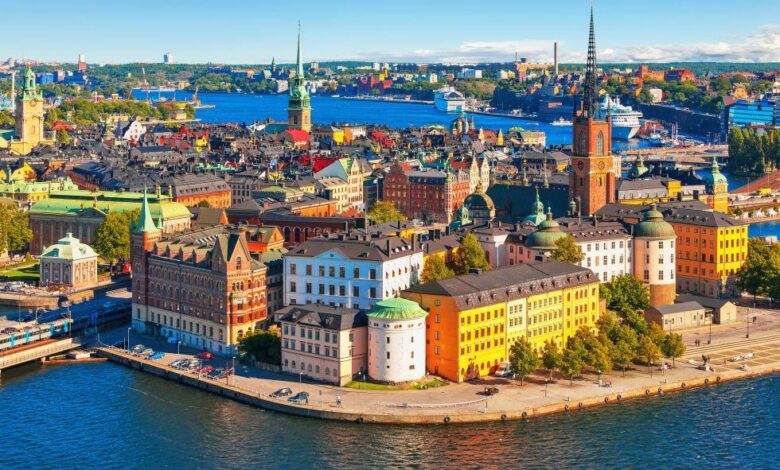Real estate in Sweden, buying, selling and tourism

Sweden, the land of Viking legends, breathtaking archipelagos, and charming red-roofed houses, offers not only scenic beauty but also a dynamic real estate market. Whether you’re drawn to owning a piece of Scandinavian serenity, a cozy city apartment, or a quaint summer retreat, here’s a comprehensive guide:
Buying in Sweden:
- Market Overview: The Swedish real estate market boasts steady growth, particularly in major cities like Stockholm, Gothenburg, and Malmö. Prices vary significantly depending on location, property type, and condition. Coastal areas and ski resorts attract higher demand and prices.
- Investment Potential: Investing in Swedish real estate, especially apartments or cabins in popular regions, can offer good returns. Rental yields are generally higher than in neighboring countries. However, thorough research and understanding of regulations are crucial.
- Buying Process: Purchasing property in Sweden involves searching, making offers, signing a “köpekontrakt” (purchase agreement), finalizing the sale with a notary (“lagfart”), and registering the property in the Land Registry. Seek help from a local real estate agent and lawyer to navigate the legalities.
Selling in Sweden:
- Market Conditions: Demand for specific types of properties, like waterfront cabins or apartments in central areas, remains high. However, factors like property condition and realistic pricing play a crucial role in attracting buyers quickly.
- Tax Implications: Capital gains taxes apply to property sales, with potential exemptions based on ownership duration and type of property. Consult a tax advisor to understand your specific tax liability.
- Selling Process: Similar to buying, the process involves marketing, negotiations, finalizing the sale with a notary, and transferring ownership. An experienced estate agent can help optimize your process and maximize your profit.
Tourism and Real Estate:
- Vacation Homes: Owning a vacation home in Sweden, from lakeside cabins in Småland to ski chalets in Åre, offers personal enjoyment and potential rental income. Popular regions include the Stockholm archipelago, the island of Gotland, and the Abisko National Park.
- Short-Term Rentals: Platforms like Airbnb can generate additional income from renting out your property to tourists for short periods. However, local regulations on short-term rentals and tourist taxes must be adhered to.
- Tourism-driven Investment: Investing in properties near tourist attractions, especially those offering amenities like boat access or ski-in/ski-out locations, can be a profitable venture. However, research is key to understanding the specific location’s tourism potential and rental markets.
Additional Points:
- Financing: Mortgages are available for residents and foreigners, but conditions may differ. Secure pre-approval before starting your property search.
- Language: Swedish is the official language, although English is spoken in major cities and tourist areas.
- Legal Framework: Swedish property law is complex, so consulting a lawyer specializing in real estate is crucial for a smooth transaction.
In conclusion, Sweden’s real estate market presents unique opportunities for buyers, sellers, and even tourists seeking vacation homes or rental income. Careful planning, understanding of legal aspects, and professional guidance are key to navigating this sector and unlocking its potential.
Feel free to ask any further questions you have about specific locations, types of properties, or any aspect of real estate in Sweden. I’m here to help you explore the magic of Scandinavia!tunesharemore_vertadd_photo_alternate




